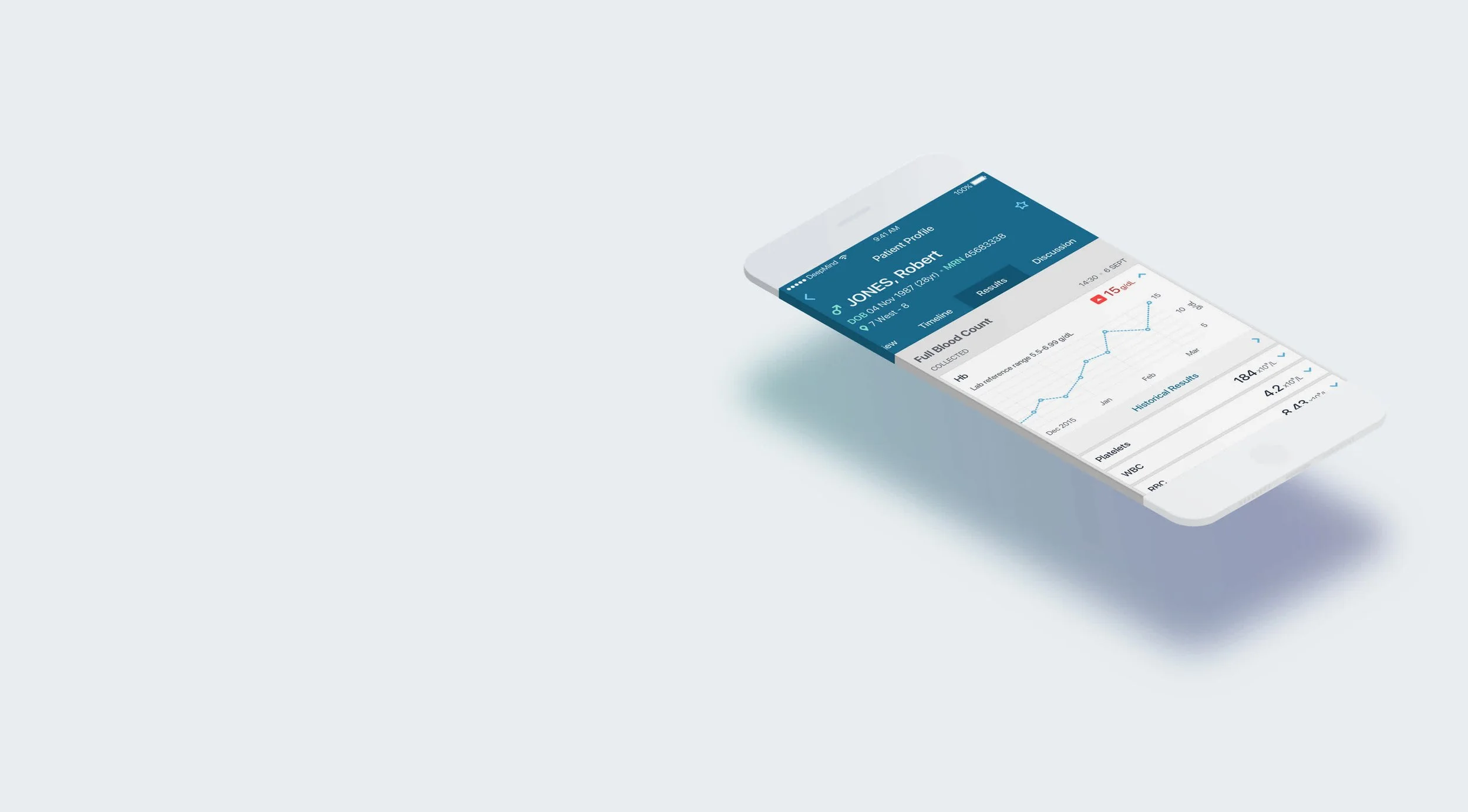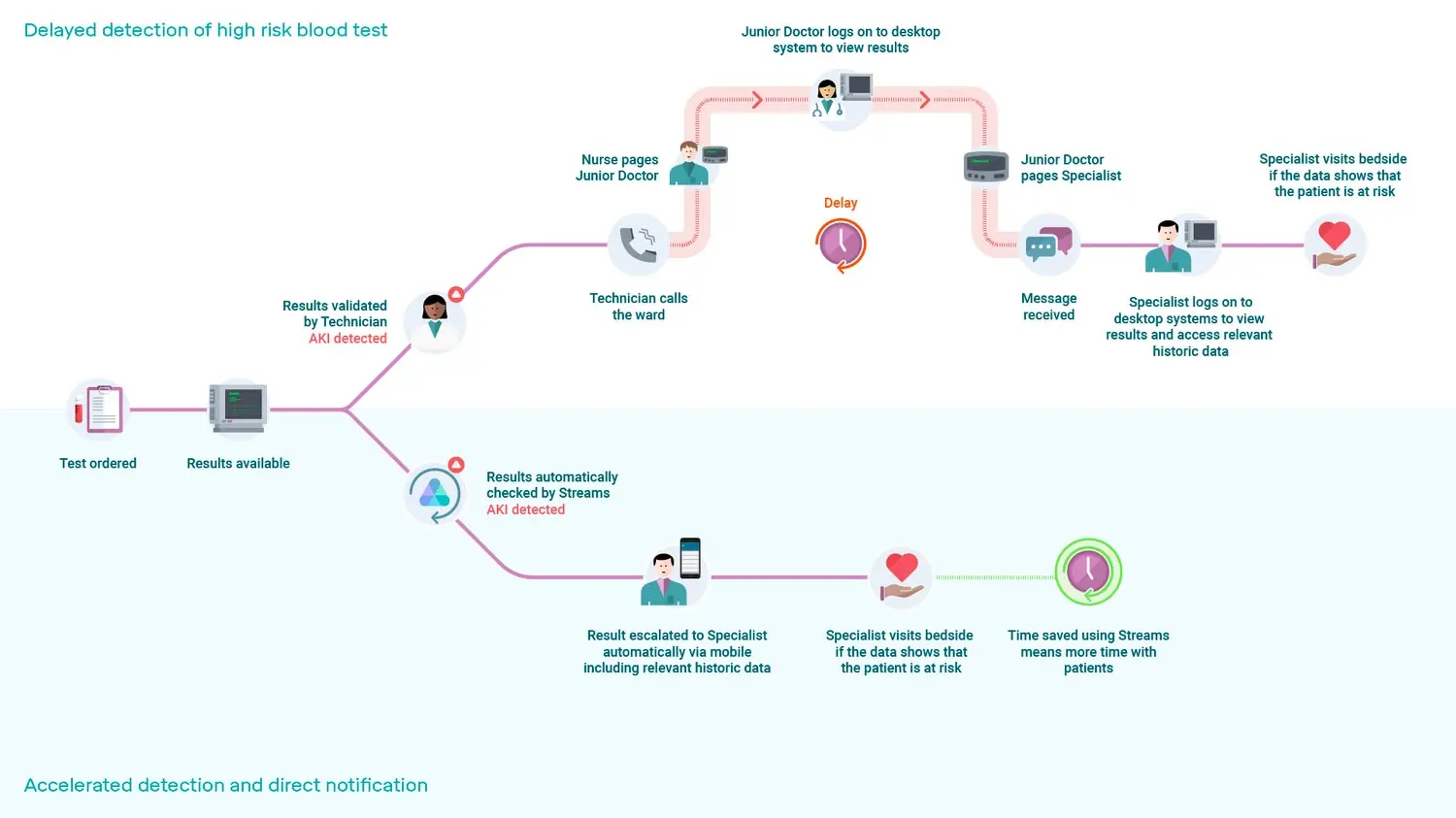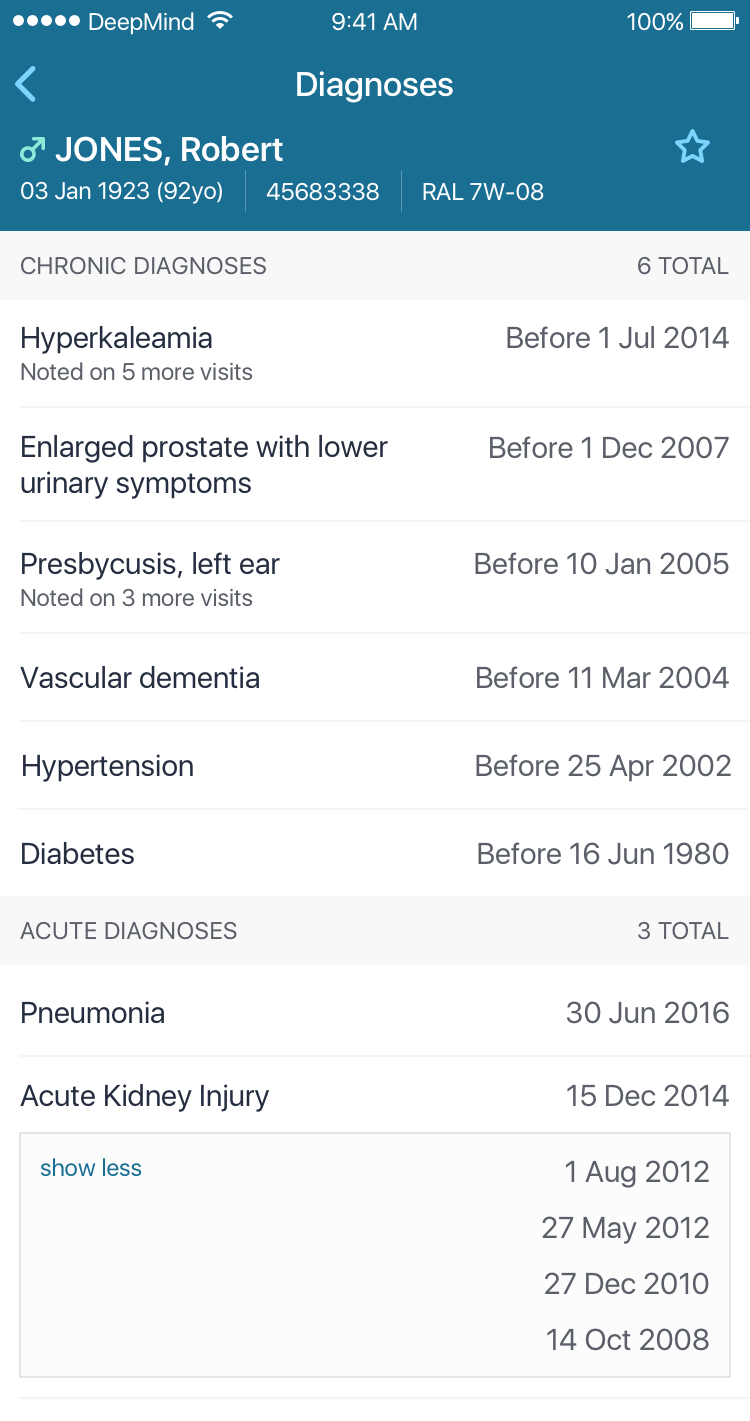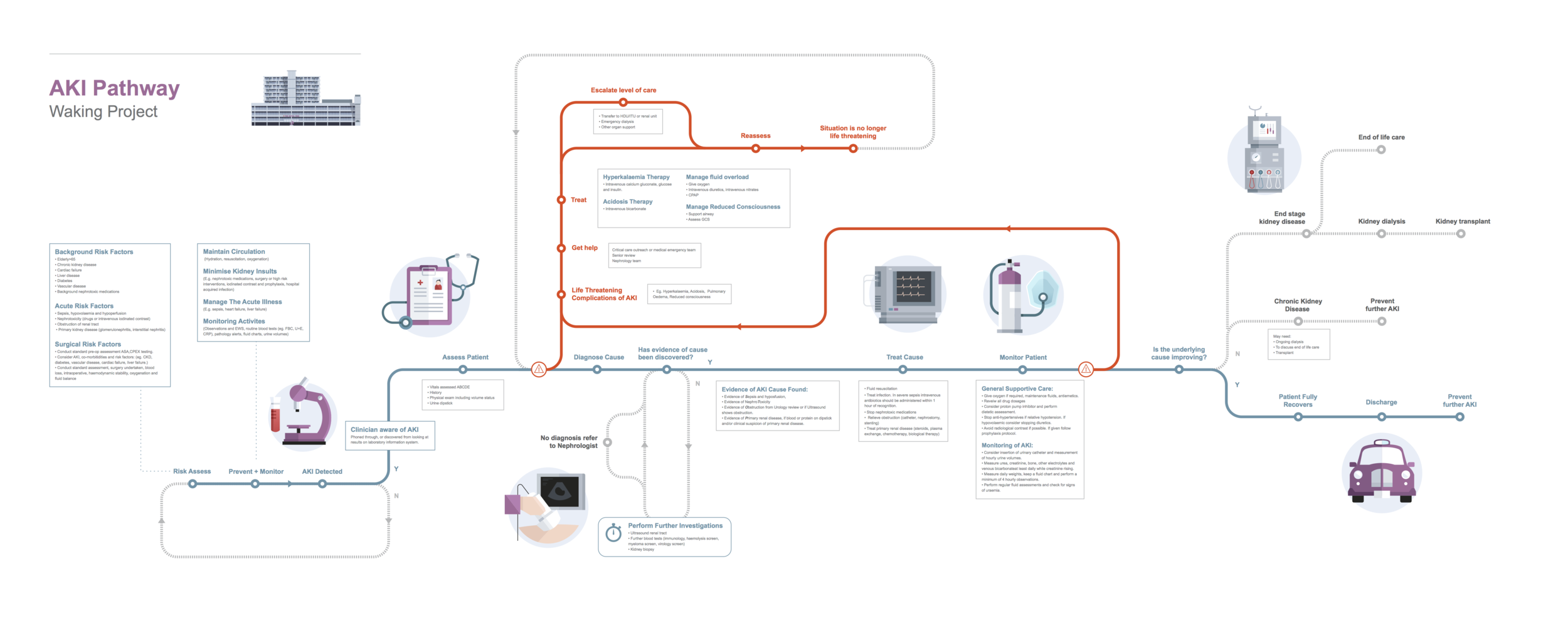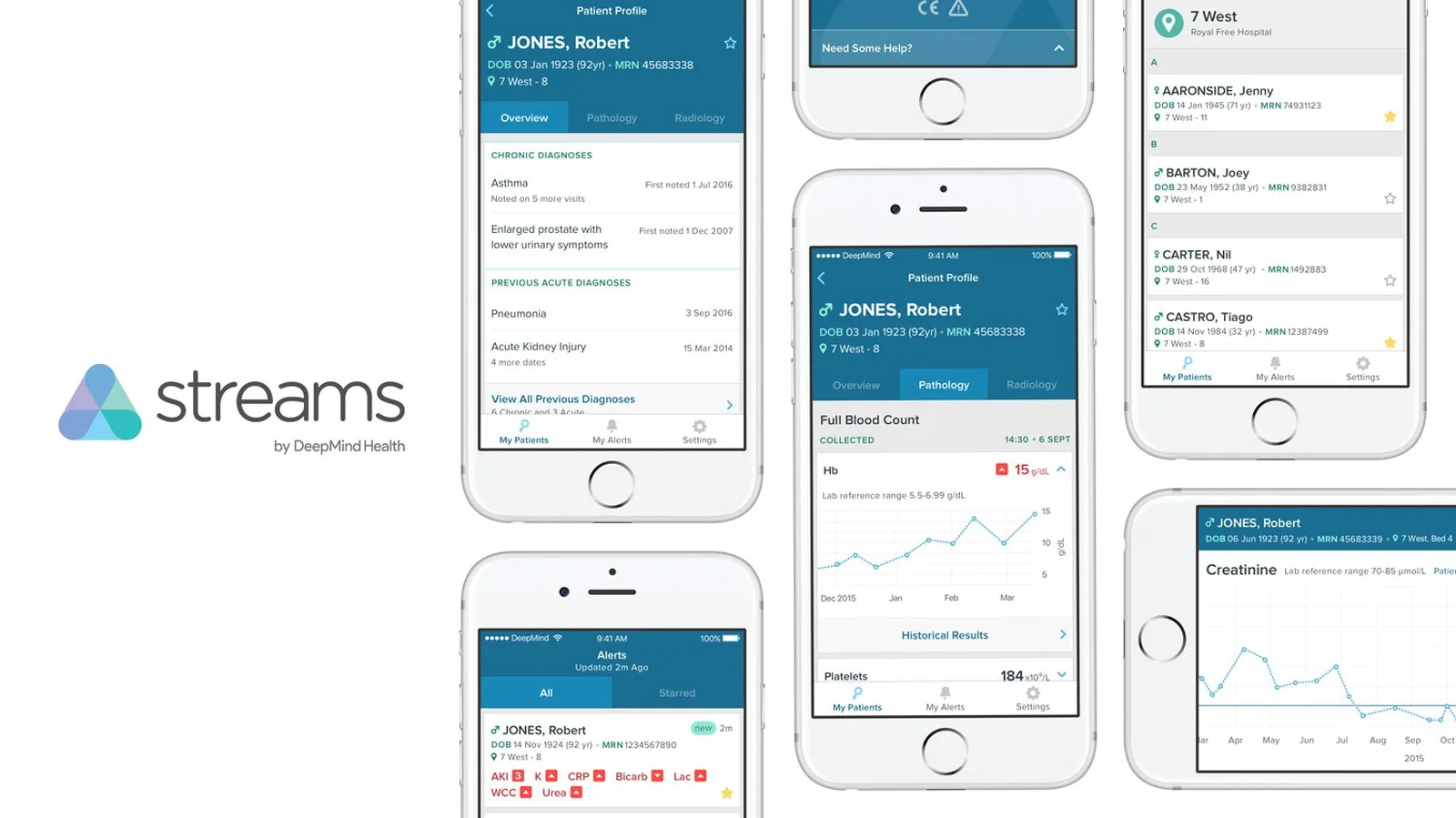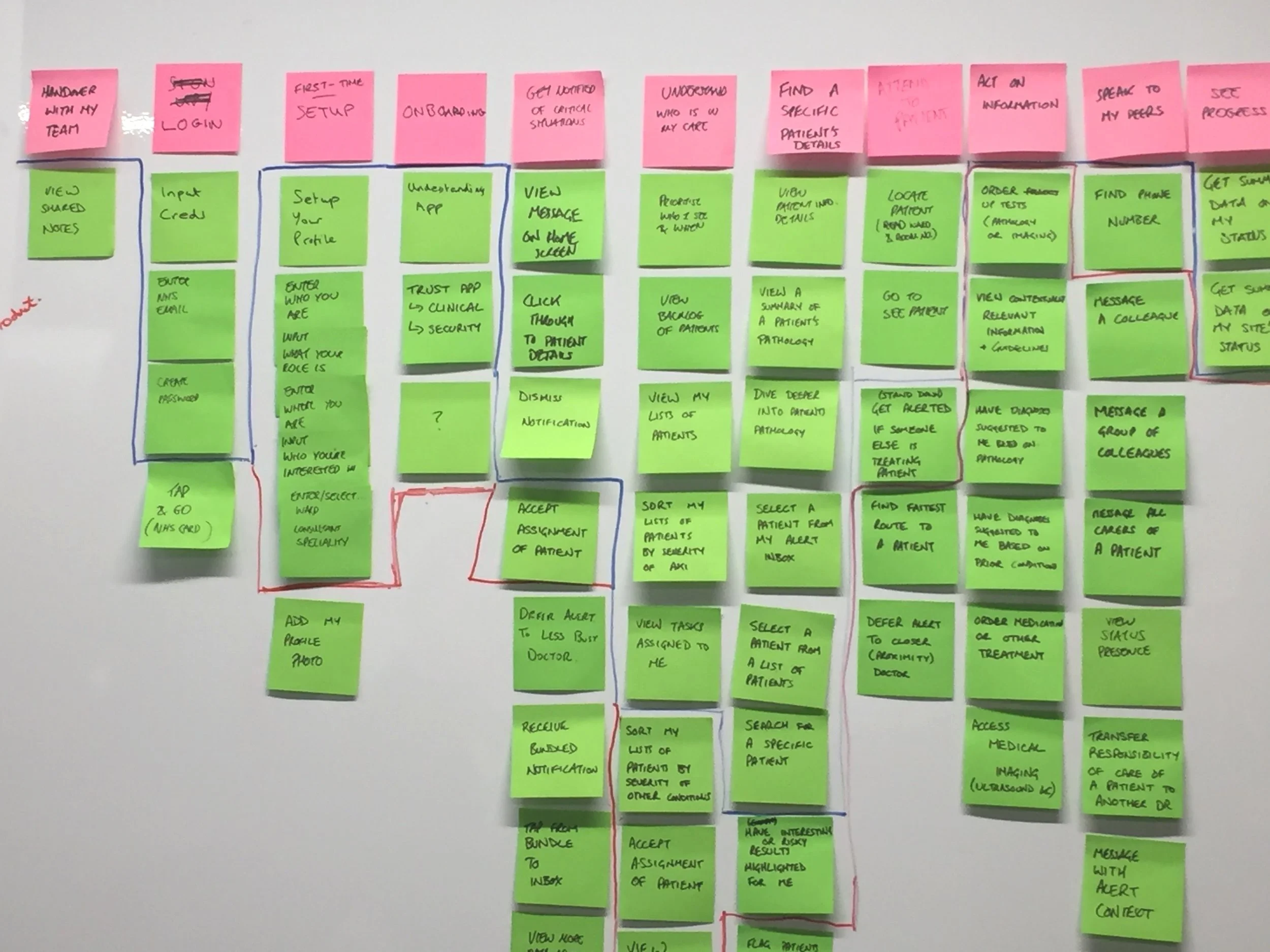Deepmind
Streams application alerts clinicians to acute kidney injury sooner saving patients’ lives, clinician’s time and £2,000 per patient for the NHS.
Saving lives, time and money
Acute kidney injury (AKI) often goes unnoticed when patients are in hospital and in the UK 100k people die each year unnecessarily. It also costs the NHS annually £1 billion. AKI can be detected from blood results via a an algorithm and acted on if clinicians are alerted early enough.
In a peer review 12% of AKI cases were missed, but with Streams in use that number reduced to 3% with clinicians responding to urgent cases within 15 minutes or less.

Human centred design
At the core of our culture was a respect for the individuals whom use our product and service. Partnering with nurses and doctors ensured we made a useful, usable and clean product.
-
DeepMind wanted to create AI and apply it to do social good, however they had not launched a product before.
We partnered with the NHS to launch a mobile service which enabled early intervention.
-
Acute kidney injury kills over 100,000 people in the UK each year unnecessarily and costs the NHS over £1 billion.
-
I led the UX and user research for the MVP, working with a visual designer, 2 product managers and DeepMind’s founder.
Once we had launched the first product, we rapidly grow the team and scaled up the product.
I set-up the design function, hiring out a 12 people UX team. I then set-up a co-management structure and took on the head of design operations to focus my efforts on setting the organization and team up for scaling. I also maintained release management to oversee the quality and progress of monthly features.
-
Hearing patient and nurse stories of how the product had genuinely saved lives.
Taking the team on “design safaris” at places like airbnb to learn about how they managed their design systems.
Leading large 60+ workshops with hospitals, where I helped coach facilitators and taught hospital teams how to carry out task analysis.
